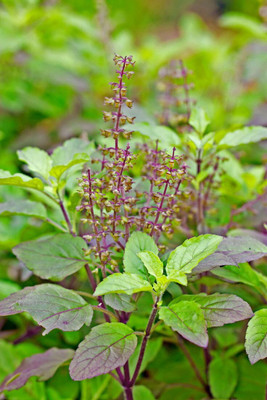S SIKDER STORE Tulsi Plant(Hybrid, Pack of 1)
Quick Overview
Product Price Comparison
The Tuisi plant, scientifically known as Ocimum tenuiflorum or Ocimum sanctum, is commonly referred to as Holy Basil or Tulsi. It's a sacred plant in Hindu culture and holds significant religious and medicinal value. Here's a description of the Tuisi plant:Plant Description:Appearance: Tuisi is an aromatic perennial plant with green or purple-hued leaves, depending on the variety.Leaves: The leaves are small, ovate, and serrated, with a strong, pleasant aroma.Height: It typically grows up to about 30-60 centimeters in height.Flowers: The plant produces small, fragrant flowers that can vary in color from white to purple, depending on the specific cultivar.Aroma: Tuisi emits a distinct fragrance that is spicy, slightly peppery, and reminiscent of cloves.Growth and Habitat:Climate: It thrives in warm, tropical climates but can also grow in temperate regions.Soil: Tuisi prefers well-drained, fertile soil with good moisture retention.Propagation: It can be propagated through seeds or cuttings.Cultural Significance: Tuisi is revered in Hinduism and is often grown in or near homes for its spiritual significance.Culinary and Medicinal Use:Culinary: The leaves are used in various cuisines, especially in South Asian cooking, imparting a unique flavor to dishes.Medicinal: Tuisi is widely known for its medicinal properties and is used in traditional medicine for its antibacterial, anti-inflammatory, and adaptogenic properties. It's believed to promote general health and well-being.Health Benefits:Adaptogen: It's considered an adaptogen, helping the body adapt to stress and promoting balance.Antioxidant: Tuisi contains antioxidants that help combat free radicals in the body.Potential Health Uses: It's used to alleviate respiratory issues, reduce inflammation, aid digestion, and promote overall wellness.Note:Varieties: There are several varieties of Tuisi, each with slightly different appearances and aromas.Tuisi holds a special place not just in religious and cultural practices but also in traditional medicine due to its wide-ranging health benefits. Its distinct aroma and flavor make it a popular herb for culinary use, while its medicinal properties have contributed to its status as a revered plant in various cultures.


